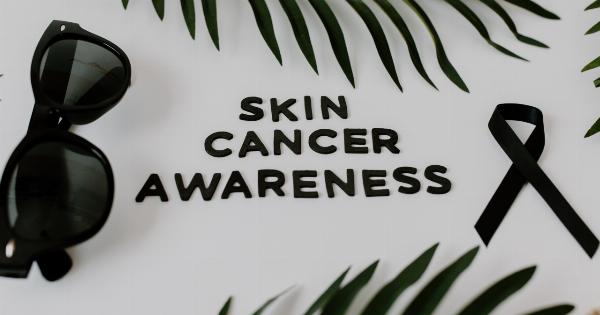Mango is a delicious fruit that offers several health benefits. The fruit is packed with nutrients and antioxidants that can help fight several diseases, including cancer.
Recent research has shown that mango contains compounds that have anti-cancer properties and can help prevent the growth and spread of cancer cells in the body.
What is Cancer?
Cancer is a disease that occurs when abnormal cells in the body grow out of control. These cells can form a mass called a tumor or can invade nearby tissues and organs, spreading to other parts of the body.
Cancer is the second leading cause of death globally with over 9.6 million deaths reported annually. It is a complex and multifactorial disease that has no known cure yet. However, several lifestyle changes, including a healthy diet, regular exercise, and avoiding environmental pollutants, can help reduce the risk of developing cancer.
Mango and Cancer
Mangoes are a rich source of nutrients and antioxidants, including vitamins A, C, and E, beta-carotene, and polyphenols. These essential compounds have several health benefits, including cancer prevention.
Some compounds in mangoes are thought to have anti-cancer properties, including:.
1. Mangiferin
Mangiferin is a polyphenol found in mangoes that has strong antioxidant and anti-inflammatory properties. Recent studies have shown that mangiferin can help prevent the growth and spread of cancer cells in the body.
2. Quercetin
Quercetin is another antioxidant found in mangoes that has anti-cancer properties. This compound can help prevent the growth and spread of cancer cells and also induce cancer cell death.
3. Beta-Carotene
Beta-carotene is a type of vitamin A found in mangoes and other fruits. It is a potent antioxidant that can help protect cells against damage caused by free radicals.
Studies have shown that consuming foods high in beta-carotene can help reduce the risk of cancer.
4. Polyphenols
Polyphenols are a group of compounds found in mangoes that have anti-cancer properties. These compounds can help prevent the growth and spread of cancer cells in the body and also induce cancer cell death.
5. Vitamin C
Vitamin C is an essential nutrient found in mangoes and other fruits. This vitamin has strong antioxidant properties and can help protect cells against damage caused by free radicals.
Studies have shown that consuming foods high in vitamin C can help reduce the risk of cancer.
Mango and Breast Cancer
Breast cancer is the most common type of cancer in women worldwide, with over 2 million new cases reported in 2020. Several studies have shown that consuming mangoes can help reduce the risk of breast cancer.
One study published in the journal Nutrition and Cancer found that mango extracts can help prevent the growth and spread of breast cancer cells in vitro. Another study published in the Journal of Agricultural and Food Chemistry found that mango polyphenols can help induce apoptosis, or programmed cell death, in breast cancer cells.
Mango and Prostate Cancer
Prostate cancer is the second most common type of cancer in men worldwide, with over 1 million new cases reported in 2020. Several studies have shown that consuming mangoes can help reduce the risk of prostate cancer.
One study published in the journal Nutrition and Cancer found that mango extracts can help prevent the growth and spread of prostate cancer cells in vitro. Another study published in the Journal of Agricultural and Food Chemistry found that mango polyphenols can help induce apoptosis in prostate cancer cells.
Mango and Colon Cancer
Colon cancer is the third most common type of cancer worldwide, with over 1 million new cases reported in 2020. Several studies have shown that consuming mangoes can help reduce the risk of colon cancer.
One study published in the Journal of Agricultural and Food Chemistry found that mango polyphenols can help prevent the growth and spread of colon cancer cells in vitro. Another study published in the journal Integrative Cancer Therapies found that mango extracts can help reduce the size of colon tumors in mice.
Mango and Skin Cancer
Skin cancer is the most common type of cancer worldwide, with over 5 million new cases reported in 2020. Several studies have shown that consuming mangoes can help reduce the risk of skin cancer.
One study published in the journal Antioxidants found that mango polyphenols can help protect skin cells against UV-induced damage, which can lead to skin cancer. Another study published in the journal Carcinogenesis found that mango extracts can help inhibit skin cancer cell growth in vitro.
Mango and Lung Cancer
Lung cancer is the most common cause of cancer-related deaths worldwide, with over 1.7 million deaths reported in 2020. Several studies have shown that consuming mangoes can help reduce the risk of lung cancer.
One study published in the journal Antioxidants found that mango polyphenols can help protect lung cells against oxidative damage, which can lead to lung cancer. Another study published in the journal Food Science and Nutrition found that mango extracts can help induce apoptosis in lung cancer cells.
Conclusion
Mango is a delicious fruit packed with essential nutrients and antioxidants that can help prevent several types of cancer.
The anti-cancer properties of mangoes are attributed to compounds such as mangiferin, quercetin, beta-carotene, polyphenols, and vitamin C. Several studies have shown that consuming mangoes can help reduce the risk of breast, prostate, colon, skin, and lung cancers. Therefore, adding mangoes to your diet can be an effective way to reduce your risk of cancer.





























